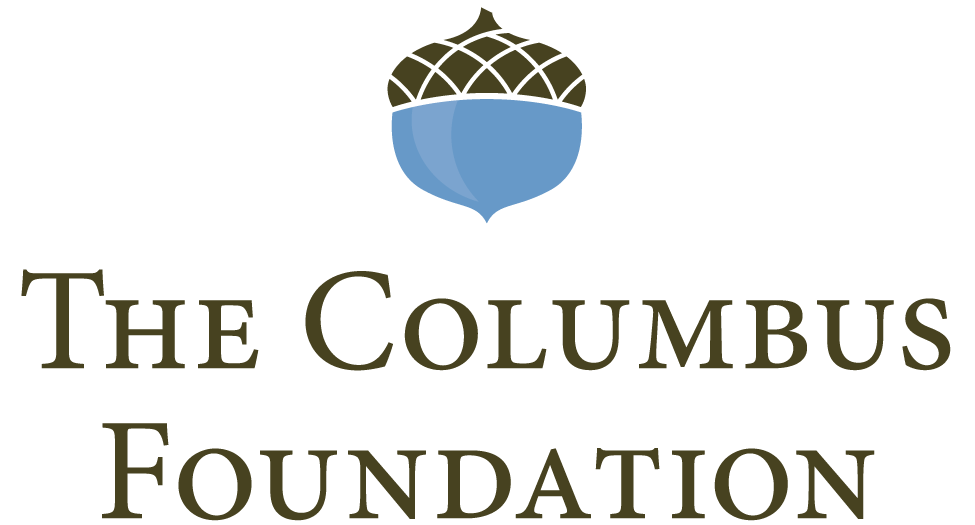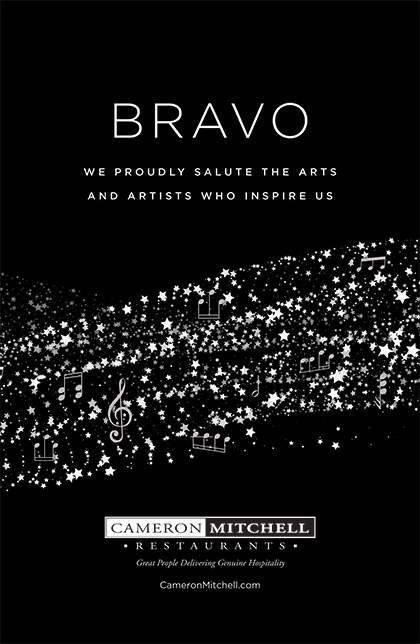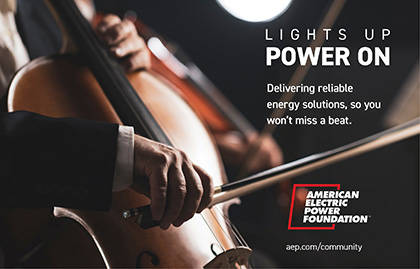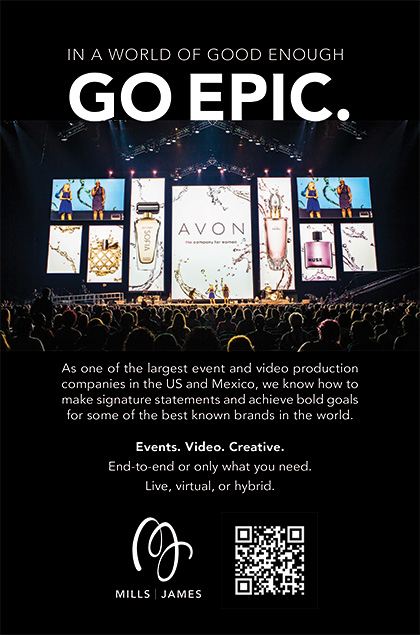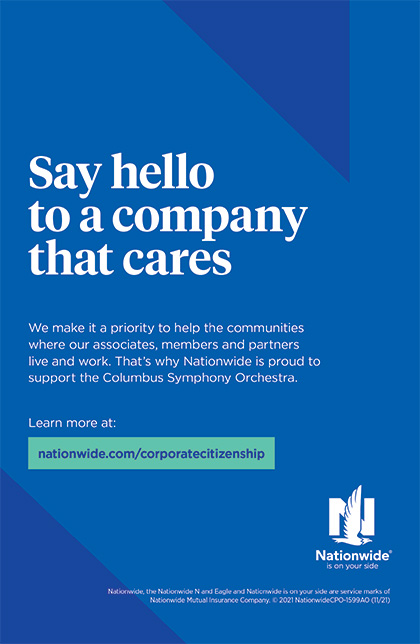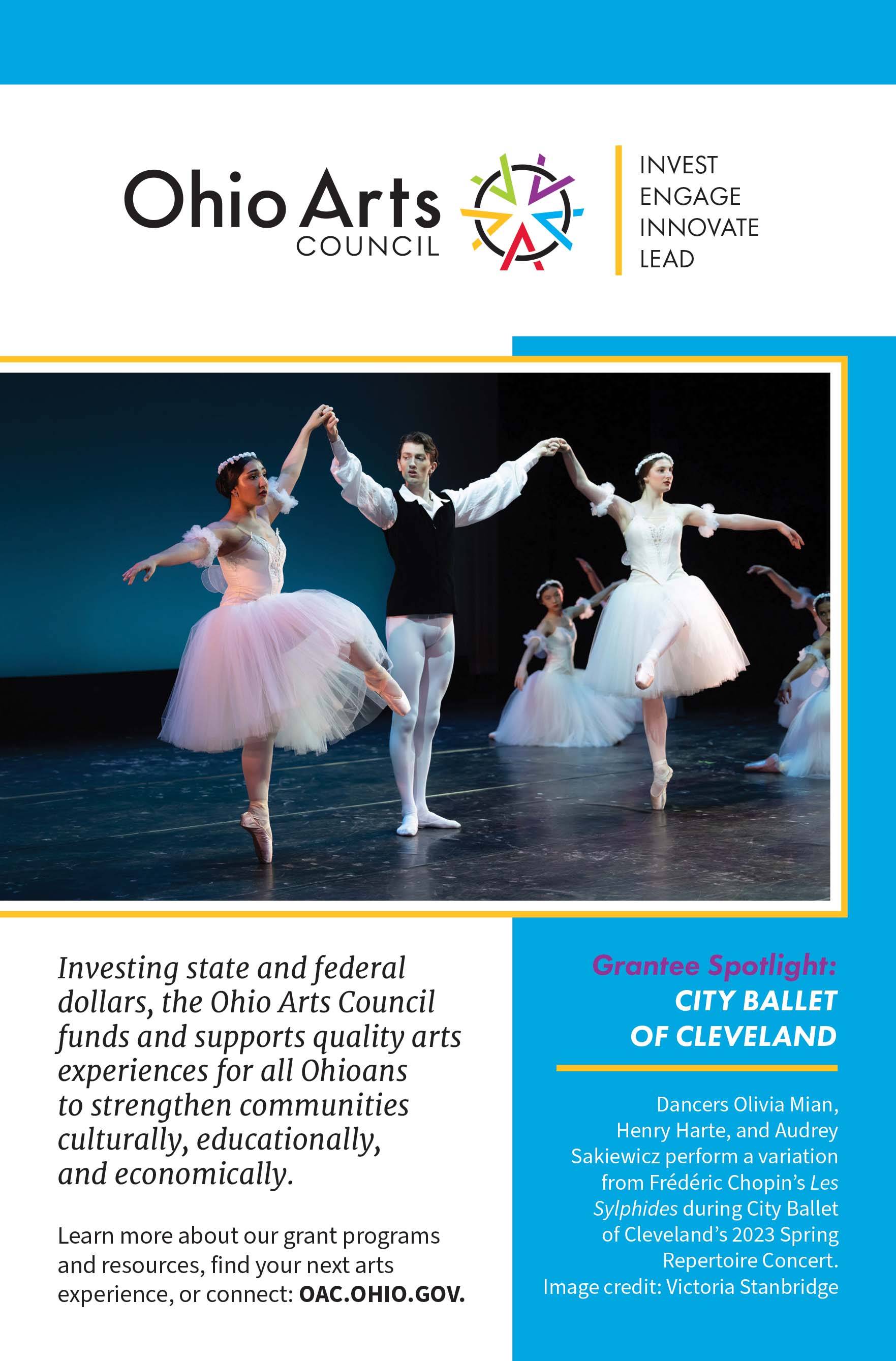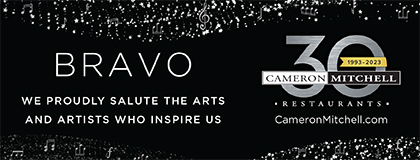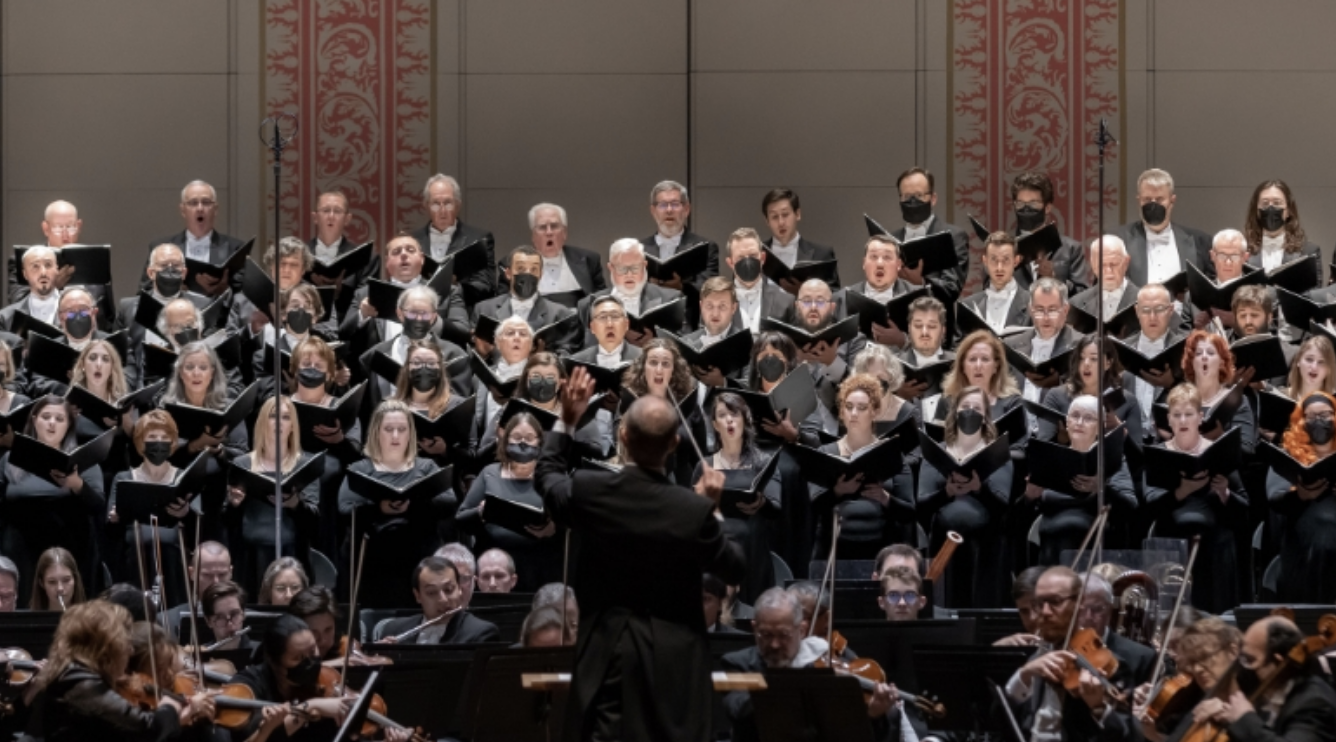
 Dear Columbus Symphony Supporter,
Dear Columbus Symphony Supporter,
Welcome to the 2024-25 Masterworks season! This season is particularly meaningful to me, as it is my 10th anniversary season in Columbus. We have accomplished so much together in the last decade, and I look forward to celebrating with you throughout this year.
We open the season with A John Williams Celebration on September 20 and 22, featuring some of the most popular, recognizable, and critically-acclaimed film scores in modern history.
On October 5, Wagner’s Ring will entrance you with the legendary music of Richard Wagner’s immense operatic Ring cycle, with all four operas re-imagined into one continuous 75-minute performance. Journey through epic tales of mythical gods and heroes in this incredible arrangement, performed without singers.
Next (November 1 and 2), we will perform Modest Mussorgsky’s magnificent Pictures at an Exhibition in two forms: in its original version for solo piano, and in a rarely-heard orchestration by Sergei Gorkachov. Rising star pianist Maxim Lando will perform both the solo Mussorgsky and Tchaikovsky’s beloved Piano Concerto No. 2 in his Columbus Symphony debut.
We will close the 2024 portion of the season on November 15, 16, and 17 with Handel’s Messiah. I hope you will join us to experience the grandeur and tradition of Handel’s exultant masterpiece, featuring the Columbus Symphony Chorus.
On behalf of the entire Columbus Symphony family, thank you for your exceptional support of our orchestra, and for joining us for this very special season.
Please enjoy tonight’s performance!

Rossen Milanov,
Columbus Symphony Music Director
VIOLIN I VIOLA | FLUTE HORN |

HANDEL'S MESSIAH
MASTERWORKS 4
Rossen Milanov, conductor
Columbus Symphony Chorus
Aubry Ballarò, soprano
Alexis Peart, mezzo-soprano
David Walton, tenor
Joseph Barron, bass
Stephen Caracciolo, chorus director
• • • • • • • • • • • • • • • • • • • • • • • • • • • • • •
HANDEL | Messiah |
This concert is dedicated to the memory of George L. Smith
Operating Support Generously Provided by

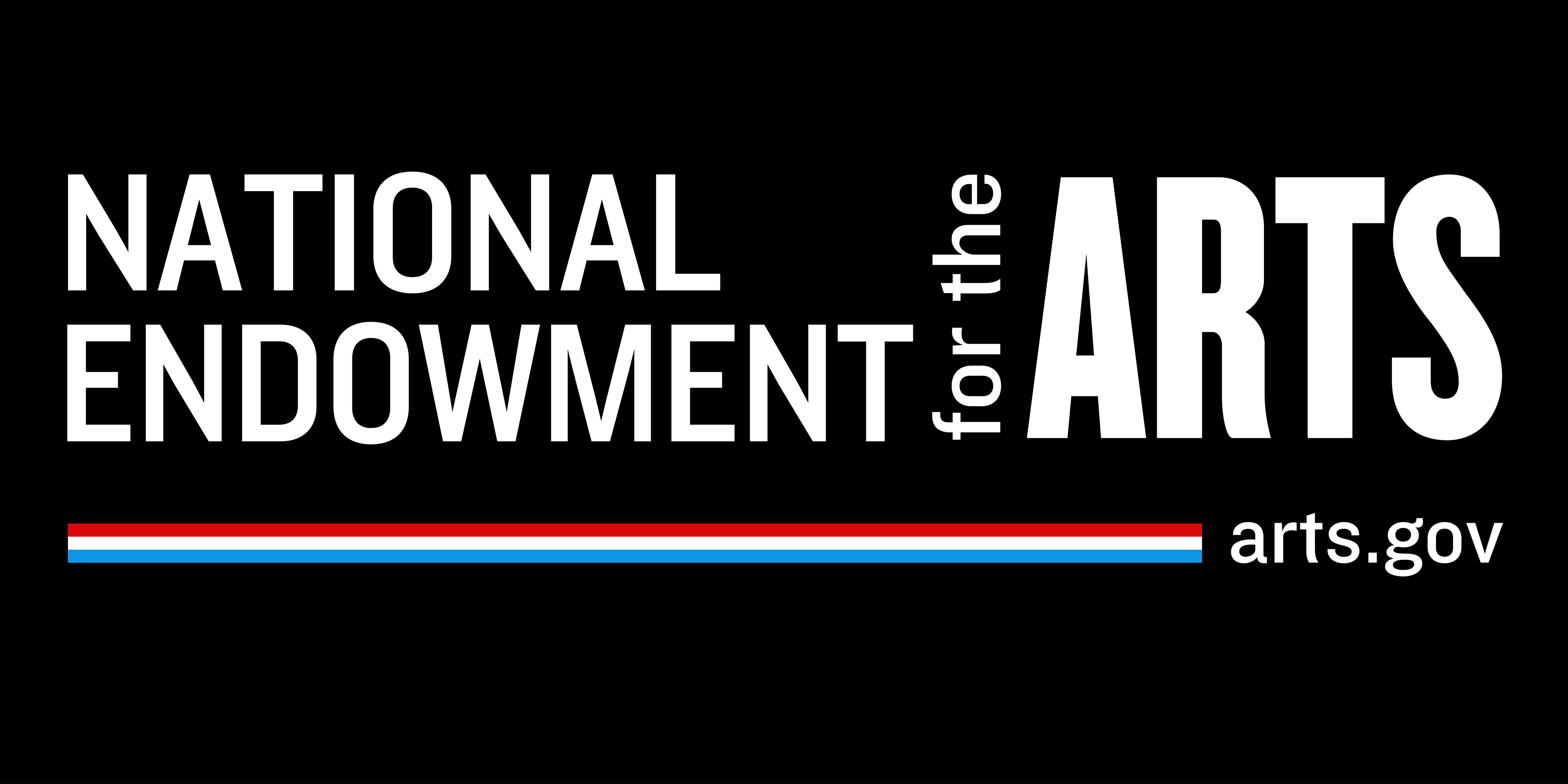
Masterworks Hotel Sponsor
Media Sponsor
Messiah (1741)
by George Frideric Handel (Halle, Saxony, 1685 – London, 1759)
Handel’s Messiah is one of those masterpieces we like to call “timeless” because we are so used to them that it is sometimes hard to imagine that they weren’t always with us. As it is by far the composer’s most popular composition, some people might assume it is a typical Handel oratorio. The truth, however, is that Messiah is very much a product of its time, and it is actually a rather unusual case among Handel’s works.
Handel turned to oratorio-writing in the 1730s, after the Italian opera company he had founded and directed in London was forced out of business by the competition. Replacing secular subject matters by sacred ones was not in itself the most far-reaching element of change. More important was the switch from the Italian language to English, which directly affected musical style – not to mention the fact that Handel now had to rely on local singers, not great stars imported from the continent.
Handel had practically no precedents to build on when he wrote his first English oratorios. His first essay in the new genre was Esther, first conceived as a shorter work back in 1718, during what was only a temporary break in Handel’s Italian opera production. Esther was considerably revised and expanded for a 1732 revival, now quickly followed by Deborah, Athalia, Saul, and Israel in Egypt. All these oratorios (as well as many of the later ones) are based on dramatic stories from the Old Testament, with the exception of Athalia, which is an adaptation of a tragedy by Racine. Messiah is unusual in that it is based on both the Old and the New Testaments, and that it has no dramatic action or named characters: it is a retelling of the life of Christ through a clever collage of Bible verses, compiled for Handel by a gentleman named Charles Jennens. (A son of a wealthy family who owned large estates in the country, Jennens devoted himself to literary, artistic, and political pursuits in London. A great admirer of Handel’s music, he served the composer as librettist not only in Messiah but in Saul, Belshazzar and, possibly, Israel in Egypt as well.)
Messiah is also the only Handel oratorio whose first performance took place outside England (namely, in Dublin, Ireland), although we don’t know for sure whether it had been intended for Handel’s Dublin season from the start. What we do know is that Handel left London for Dublin about two months after completing Messiah, and stayed there for a full nine months, during which time he gave two full subscription series of six concerts each, consisting of earlier oratorios and even one of Handel’s Italian operas in concert form. Messiah, performed on April 13 at the end of the season, completed this “baker’s dozen” of Dublin concerts.
The capital of English-dominated Ireland had a fairly rich artistic scene at the time, with considerable local talent complemented by artists coming from London. Handel found a grateful and receptive audience there, packing a “Great Music Hall” on Fishamble Street that was not nearly large enough for an event of this magnitude. The most prominent members of Dublin high society were all there, among a crowd of about 700 people. The Dublin Journal, which had called the work “the finest Composition of Musick that ever was heard,” further commented:
Words are wanting to express the exquisite Delight it afforded to the admiring crouded Audience. The Sublime, the Grand, and the Tender, adapted to the most elevated, majestick and moving Words, conspired to transport and charm the ravished Heart and Ear.
Soon after his return to London, Handel produced Messiah at Covent Garden and, due to the great success, revived it every few years for the rest of his life. He led his final Messiah performance on April 6, 1759, eight days before his death and long since completely blind. After his death, the tradition of annual Messiah performances continued, and spread to the European continent and the United States. It never needed to be revived, for it never went out of fashion during the 283 years of its existence.
From 1742 until his death, Handel made many revisions in the score, transposing arias to different vocal ranges, even deleting numbers and adding new ones, so that the work now exists in a multitude of versions, forcing performers to make choices that are not always easy. The Watkins Shaw edition, based on a careful study of all sources, is the most widely used version today.
The three parts of Messiah correspond to Nativity, Passion and Resurrection, making the work equally suitable for performance during the Lenten and Easter season (in fact, the first performance took place about two weeks after Easter in 1742). In this country, Messiah has long been a special Christmas tradition, with churches often presenting performances or sing-alongs of Part I alone. Yet the work only takes its full meaning in its entirety, surveying Christ’s entire life story in which birth, death and eternal life become inseparable.
After the overture, the first half of Part I deals with “God’s Promise.” Within that section, the happy news (“Ev’ry Valley Shall Be Exalted”) is contrasted with the fearful challenge this news may represent to the world (“But Who May Abide the Day of His Coming?”). Feelings of joy again predominate in “O Thou That Tellest Good Tidings in Zion”. Then, after an image of “the people that walked in darkness” seeing “a great light,” the “Promise” section culminates in the proclamation of the “Wonderful Counsellor, the mighty God, the everlasting Father, the Prince of Peace.”
Part I then continues with the famous Pifa or “Pastoral Symphony,” an instrumental movement symbolizing the birth of the Child, followed by the angels’ hymn of praise. The message of joy and comfort is reiterated as Part I closes.
This message contrasts dramatically with the opening of Part II, where the Lamb of God is seen suffering, “despised and rejected,” and the world, “gone astray like sheep,” becomes aware that it can only be saved by divine intervention. Subsequent numbers reflect on the Passion without literally recounting its events; the music anticipates Resurrection and – after a powerful portrayal of the forces of evil – moves on to the final defeat of those forces and the proclamation of victory in the celebrated Hallelujah chorus.
The main motive of Part III is the conquest of Death by Life, expressed in turn through an individual’s confession of faith (“I Know that My Redeemer Liveth”), a communal statement (“Since By Man Came Death”), and the glorious announcement of Judgment Day complete with the angel’s trumpet (“The Trumpet Shall Sound”). One last time we turn to a personal reflection in the aria “If God Be For Us,” before the chorus makes its final proclamation in “Worthy Is the Lamb.” We see, then, how Jennens’s textual compilation makes both theological and dramatic sense as it provides a logical train of thought by arranging a large number of religious topics in a unified and highly compelling sequence.
This dramatic logic, which makes up for the absence of a “plot” in the conventional sense, enabled Handel to write music that illustrated each topic, but also did infinitely more than that. One could say that the text takes its full meaning only when joined by the music. Handel placed his contrapuntal virtuosity in the service of drama in the great choral fugues (“And With His Stripes,” and “He Trusted in God,” and bent the strict rules of fugue-writing in numerous ways to suit his dramatic purpose. Often, as in “And He Shall Purify” or “For Unto Us A Child Is Born,” the first voice drops out when the second, imitating voice enters. It is an unorthodox practice that reduces the counterpoint and even eliminates it completely at times, yet it brings single parts from the chorus to the foreground almost as if they were individual characters in a drama. The arias have obvious links to the style of Italian opera in which Handel worked for so many years; yet he tended to move away from the standard “da-capo” form which, with its insistence on repeating the entire first half after the middle section, could impede the dramatic flow. There is only one aria with a full repeat of its first section: “He was despised.” “The Trumpet Shall Sound” has an almost full repeat, with the instrumental introduction omitted the second time.
Maybe the most extraordinary quality of the music of Messiah is its combination of religious feeling with uncommon vigor and natural robustness. Despite moments of grief and tragedy which are by no means downplayed in the music, Messiah, from the opening Overture to the final “Amen,” really bursts with life. Which may well be one of the reasons why we don’t want to be without this work, especially during a time of year traditionally associated with the celebration of life and renewal.
PART I
Sinfonia
Accompagnato (Tenor)
Comfort ye, comfort ye my People, saith your God; speak ye comfortably to Jerusalem, and cry unto her, that her Warfare is accomplish’d, that her Iniquity is pardon’d. The Voice of him that crieth in the Wilderness, prepare ye the Way of the Lord, make straight in the Desert a Highway for our God.
(Isaiah 40, 1-3)
Air (Tenor)
Ev'ry valley shall be exalted, and ev’ry Mountain and Hill made low, the Crooked straight, and the rough places plain.
(Isaiah 40, 4)
Chorus
And the glory of the Lord shall be revealed, and all Flesh shall see it together; for the Mouth of the Lord hath spoken it.
(Isaiah 40, 5)
Accompagnato (Bass)
Thus saith the Lord of Hosts; Yet once a little while, and I will shake the Heav’ns and the Earth; the Sea and the dry Land: and I will shake all Nations: and the Desire of all Nations shall come.
(Haggai 2, 6-7)
The Lord whom ye seek shall suddenly come to his Temple, ev’n the Messenger of the Covenant, whom ye delight in: Behold He shall come, saith the Lord of Hosts.
(Malachi 3,1)
Air (Alto)
But who may abide the day of his coming? And who shall stand when He appeareth? For He is like a Refiner’s Fire.
(Malachi 3,2)
Chorus
And he shall purify the Sons of Levi, that they may offer unto the Lord an Offering in Righteousness.
(Malachi 3,3)
Recitative (Alto)
Behold, a virgin shall conceive, and bear a Son, and shall call his Name Emmanuel, God with us.
(Isaiah 7, 14; Matthew 1, 23)
Air (Alto) and Chorus
O thou that tellest good Tidings to Zion, get thee up into the high Mountain: O thou that tellest good tidings to Jerusalem, lift up thy Voice with Strength: lift it up, be not afraid: Say unto the Cities of Judah, Behold your God. O thou that tellest good Tidings to Zion, arise, shine, for thy Light is come, and the Glory of the Lord is risen upon thee.
(Isaiah 40, 9; Isaiah 60.1)
Accompagnato (Bass)
For behold, Darkness shall cover the Earth, and gross Darkness the People: but the Lord shall arise upon thee, and his Glory shall be seen upon thee. And the Gentiles shall come to thy Light, and Kings to the Brightness of thy Rising.
(Isaiah 60. 2-3)
Air (Bass)
The people that walked in Darkness have seen a great Light; and they that dwell in the Land of the Shadow of Death, upon them hath the Light shined.
(Isaiah 9,2)
Chorus
For unto us a Child is born, unto us a Son is given; and the Government shall be upon his Shoulder; and His Name shall be called Wonderful, Counsellor, The Mighty God, The Everlasting Father, The Prince of Peace.
(Isaiah 9,6)
Pifa (Pastoral Symphony)
Recitative (Soprano)
There were Shepherds abiding in the Field, keeping Watch over their Flock by Night.
(Luke 2,8)
Accompagnato (Soprano)
And lo, the Angel of the Lord came upon them, and the Glory of the Lord shone round about them, and they were sore afraid.
(Luke 2,9)
Recitative (Soprano)
And the angel said unto them, Fear not; for behold, I bring you good Tidings of great Joy, which shall be to all People. For unto you is born this Day, in the City of David, a Saviour, which is Christ the Lord.
(Luke 2,10-11)
Accompagnato (Soprano)
And suddenly there was with the Angel a Multitude of the heav’nly Host, praising God, and saying…
(Luke 2,13)
Chorus
Glory to God in the Highest, and Peace on Earth, Good Will towards Men.
(Luke 2,14)
Air (Soprano)
Rejoice greatly, O Daughter of Zion, O Daughter of Jerusalem; behold, thy King cometh unto thee: He is the righteous Saviour; and He shall speak Peace unto the Heathen.
(Zechariah 9,9-10)
Recitative (Alto)
Then shall the Eyes of the Blind be open’d, and the Ears of the Deaf unstopped; then shall the lame Man leap as a Hart, and the Tongue of the Dumb shall sing.
(Zechariah 35,5-6)
Air (Alto and Soprano)
He shall feed his Flock like a Shepherd: and He shall gather the Lambs with His Arm, and carry them in his Bosom, and gently lead those that are with young. Come unto Him all ye that labour, come unto Him all ye that are heavy laden, and He will give you Rest. Take his Yoke upon you and learn of Him; for He is meek and lowly of Heart: and ye shall find Rest unto your souls.
(Isaiah 40,11; Matthew 11, 28-29)
Chorus
His Yoke is easy, his Burthen is light.
(Matthew 11, 30)
PART II
Chorus
Behold the Lamb of God, that taketh away the Sin of the World.
(John 1,29)
Air (Alto)
He was despised and rejected of Men, a Man of Sorrows, and acquainted with Grief.
(Isaiah 53,3)
Chorus
Surely he hath borne our Griefs and carried our Sorrows: He was wounded for our Transgressions, He was bruised for our Iniquities; the Chastisement of our Peace was upon Him.
(Isaiah 53,4-5)
Chorus
And with His Stripes we are healed.
(Isaiah 53,5)
Chorus
All we, like Sheep, have gone astray, and we have turn’d ev’ry one to his own Way, and the Lord hath laid on Him the Iniquity of us all.
(Isaiah 53,6)
Accompagnato (Tenor)
All they that see Him laugh Him to scorn; they shoot out their Lips, and shake their Heads, saying…
(Psalm 22,7)
Chorus
He trusted in God, that He would deliver Him; let Him deliver Him, if He delight in Him.
(Psalm 22,8)
Accompagnato (Tenor)
Thy Rebuke hath broken His heart; He is full of Heaviness: He looked for some to have Pity on Him, but there was no Man, neither found He any to comfort Him
(Psalm 69,21)
Arioso (Tenor)
Behold, and see, if there be any Sorrow like unto His Sorrow!
(Lamentations 1,12)
Accompagnato (Tenor)
He was cut off out of the Land of the Living: For the Transgression of thy People was He stricken.
(Isaiah 53,8)
Air (Tenor)
But thou didst not leave His soul in Hell, nor didst Thou suffer Thy Holy One to see Corruption.
(Psalm 16,10)
Air (Bass)
Why do the Nations so furiously rage together? And why do the People imagine a vain Thing? The Kings of the Earth rise up, and the Rulers take Counsel together against the Lord and against his Anointed.
(Psalm 2,1-2)
Chorus
Let us break their Bonds asunder, and cast away their Yokes from us.
(Psalm 2,3)Recitative (Tenor)
He that dwelleth in Heaven shall laugh them to scorn; the Lord shall have them in Derision.
(Psalm 2,4)
Air (Tenor)
Thou shalt break them with a Rod of Iron; thou shalt dash them in pieces like a Potter’s Vessel.
(Psalm 2,9)
Chorus
Hallelujah! For the Lord God Omnipotent reigneth. The Kingdom of this World is become the Kingdom of our Lord and of His Christ; and He shall reign for ever and ever, King of Kings, and Lord of Lords. Hallelujah!
(Revelation 19,6; 11,15; 19,16)
PART III
Air (Soprano)
I know that my Redeemer liveth, and that He shall stand at the latter Day upon the Earth: and tho’ Worms destroy his Body, yet in my Flesh shall I see God. For now is Christ risen from the Dead, the First-Fruits of them that sleep.
(Job 19,25-26; 1 Corinthians 15,20)
Chorus
Since by Man came Death, by Man came also the Resurrection of the Dead. For as in Adam all die, even so in Christ shall all be made alive.
(1 Corinthians 15,21-2)
Recitative (Bass)
Behold, I tell you a Mystery: We shall not all sleep, but we shall all be chang’d, in a Moment, in the Twinkling of an Eye, at the last Trumpet.
(1 Corinthians 15, 51-2)
Air (Bass)
The Trumpet shall sound, and the Dead shall be rais’d incorruptible, and We shall be chang’d. For this corruptible must put on Incorruption, and this Mortal must put on Immortality.
(1 Corinthians, 15,52-4)
Chorus
Worthy is the Lamb that was slain, and hath redeemed us to God by His Blood, to receive Power, and Riches, and Wisdom, and Strength, and Honour, and Glory, and Blessing. Blessing and Honour, Glory and Pow’r be unto Him that sitteth upon the Throne, and unto the Lamb, for ever and Amen.
(Revelation 5,12-14)
